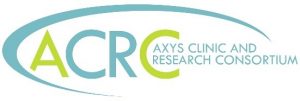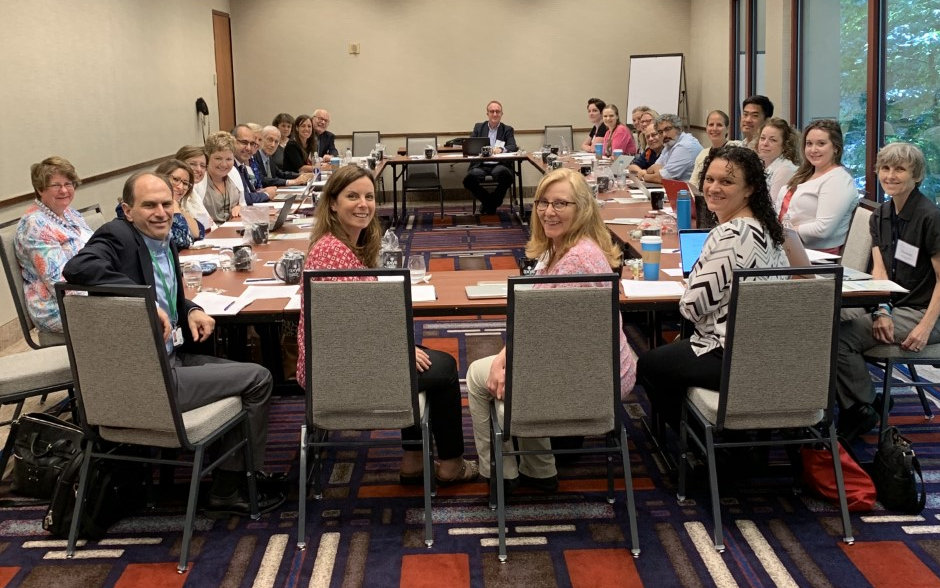Types of Clinics
Due to the many X & Y Chromosome variations, not all clinics specialize in all conditions. Below is a listing of ACRC clinics. The specific conditions and patient ages served by the clinic are noted in the description.
Multidisciplinary Clinics
Some clinics use a multidisciplinary approach, offering medical, psychological, and therapy services in one visit. Providers collaborate to create coordinated care plans and may offer take-home materials for local professionals. Check each clinic’s website or ask when scheduling to understand its specific services.
Note: Anyone planning to visit an ACRC clinic should check with the specific clinic and their insurance provider to see if they have coverage
California
Los Angeles
Cedars Sinai Hospital: eXemplarY Kids Clinic
X and Y variations seen: All
Ages seen: Birth to age 21
Medical Director: Co-Directors: Yana J. Tavyev MD and B. Michelle Schweiger, DO, MPH
Appointments/Clinic Coordinator: Katie Grand, MS, LCGC, 310-423-9935
Hospital website
Sacramento
XY Chromosomal Variation Clinic
X and Y variations seen: All X and Y Chromosomal Variations
Ages seen: Adults and children
Adult and Pediatric Clinic Medical Director: Daniah Beleford, MD, PhD, FACMG
Active Clinical X/Y Variation Researcher: Daniah Beleford, MD, PhD, FACMG
Clinic Coordinator/Questions: Samantha Runa, MS, CGC, Clinical Genetics, sruna@ucdavis.edu, 916-703-3032
Referral and Appointments: : 916-703-0300 (Option #4) | Fax: 916-703-0350
Clinic Website
Stanford
Stanford University School of Medicine
X and Y variations seen: All
Ages seen: Children and Young Adults
Medical Co-directors: David Hong, MD and Allan Reiss, MD
Appointments/Clinic Coordinator: Lucia Gutierrez, lgutierrez@stanford.edu, 650-498-4538
Hospital website
Colorado
Denver
Children’s Hospital Colorado: eXtraordinarY Kids Clinic
X and Y variations seen: All
Ages seen: Prenatal to young adulthood
Medical Director: Nicole Tartaglia, MD
Clinic Coordinator: Susan Howell, MS, MBA, CGC
Appointments: 720-777-8361 or extraordinarykidsclinic@childrenscolorado.org
Clinic website
Delaware
Wilmington
Nemours Alfred I. duPont Hospital for Children: eXtraordinarY Kids Clinic
X and Y variations seen: All
Ages seen: Prenatal to young adulthood
Medical Director: Judith Ross, MD
Co-Director: Chijoke Ikomi, MD, chijioke.ikomi@nemours.org
Appointments/Clinic Coordinator: extraordinarykidsclinic@nemours.org, 302-298-8392
Clinic website | Clinic brochure
Denmark
Aarhus University Hospital
Address: Department of Endocrinology Aarhus University Hospital
X and Y variations seen: All
Ages seen: Children and Adults
Medical Director: Else Vestbo
Contact: Dr. Anne Kirstine Stochholm Krag, annkra@rm.dk
Additional clinicians and researchers:
- Dr. Marie Juul Ornstrup
- Dr. Claus Gravholt
Phone: 0045 78455470
Clinic website
Georgia
Atlanta
Emory University: The eXtraordinarY Clinic at Emory University
X and Y variations seen: All
Ages seen: Birth to young adulthood
Medical Director: Amy L. Talboy, MD
Appointments: 404-778-1363
Website
Illinois
Chicago
Rush University Medical Center
X and Y variations seen: All
Ages seen: Birth to young adulthood
Medical Director: Elizabeth Berry-Kravis, MD, PhD
Clinic Coordinator: Angel Wang and Milica Milic
Appointments: 312-942-3034 or 312-563-4937
Chicago
Ann & Robert H. Lurie Children’s Hospital of Chicago
X and Y variations seen: All
Ages seen: Prenatal to young adulthood
Medical Director: Courtney Finlayson, MD
Appointments: Danielle Lee, MSW, Program coordinator, 312-227-6203
Website
Maryland
Baltimore
Johns Hopkins: 47,XXY Klinefelter Syndrome Center
X and Y variations seen: Klinefelter syndrome; male infertility.
Ages seen: Children and adults
Medical Director: Adrian Dobs, MD
Appointments: Hopkins USA Concierge Service, 855-695-4872 (Monday-Friday, 8am – 6pm ET)
Clinic website
Massachusetts
Boston
MassGeneral Hospital Klinefelter Syndrome Clinic
X and Y variations seen: Klinefelter syndrome (47,XXY), 47,XYY, 48,XXYY, 48,XXXY, and other male X and Y chromosome variations
Ages seen: Prenatal through adulthood
Medical Director: Frances High, MD, PhD and Frances Hayes, MBBCh, BAO
Appointments/Clinic Coordinator: 617-726-5521
For MGH Trisomy X care, call Medical Genetics at 617-726-1561
Clinic website
Read more about this clinic in this AXYS Clinic Spotlight Article
The Netherlands
Leiden
TRIXY Centre of Expertise, Leiden University
X and Y variations seen: XXY, Trisomy X, XYY
Ages seen: 0-18 years, adults
Medical Director: Prof.dr. Hanna Swaab
Appointments: TRIXY, part of Leids Universitair Behandel en Expertise Centrum (LUBEC) ambulatorium@fsw.leidenuniv.nl | +31-71 527 40 63
Clinic Website
New York
New York City
Weill Cornell Medicine Klinefelter Syndrome Clinic, Weill Cornell Medical College
X and Y variations seen: All
Ages seen: Birth to young adulthood
Director: Lilian Cohen, MD MPH
Clinic Coordinator: Lilian Cohen, MD MPH
Clinic website | 646-962-2205
Ohio
Cleveland
eXtraordinarY Kids Care at Cleveland Clinic
X and Y Variations seen: XXY and other X & Y variations
Ages seen: Prenatal to young adulthood
Medical Director: Andrea Mucci, MD
Appointments: 216-444-7987
Clinic website
Pennsylvania
Philadelphia
Children’s Hospital of Philadelphia: Klinefelter and All XY Variations Program
X and Y variations seen: All
Ages seen: Prenatal to young adulthood
Medical Director: Maria Vogiatzi, MD
Clinic Coordinator: Meagan Snow-Bailey, 215-590-3174
Clinic website
Read more about this clinic in this AXYS Clinic Spotlight Article
Philadelphia
Penn Adult Klinefelter Syndrome Program
X and Y variations seen: Klinefelter syndrome (47,XXY)
Ages seen: Above 18 years
Medical Director: Amna N. Khan, MD
Clinic Coordinator: Megan Lee, megan.lee@pennmedicine.upenn.edu, 215-614-0086
United Kingdom
London
The Adult & Young Person’s Klinefelter Syndrome Clinic, UK
X and Y variations seen: All variations
Ages seen: Children and adults
Medical Director: Mr. Tet Yap MD, MA, FRCS, FEBU
Appointments: theklinefeltersyndromeclinic.com/contact (NHS)
karen.briggs@gstt.nhs.uk & dorothy.mainoo@gstt.nhs.uk
Website: theklinefeltersyndromeclinic.com
Single Specialty Clinics
The following clinics primarily focus on a single issue associated with having an X or Y variation and may not necessarily provide the comprehensive evaluation and treatment recommendations provided by the multidisciplinary clinics. If you’re unsure about the types of services provided, be sure to ask at the time you schedule your appointment.
Canada
Vancouver, British Columbia
Flannigan Fertility – Reproductive Medicine
X and Y variations seen: Male Infertility and Sexual Medicine. Genetic disorders leading to male infertility such as Klinefelter Syndrome, mixed gonadal dysgenesis (45X, 46XY), CFTR mutations leading to male infertility. Dr. Flannigan performs sperm retrievals, and fertility management.
Ages seen: Post-pubescent adult population
Medical Director: Ryan Flannigan, MD, FRCSC
Appointments: Sunny Zheng, 604-875-5683
More information by email: clinic@ubcurology.com
Clinic website
North Carolina
Winston-Salem
Wake Forest Baptist Medical Center, Department of Urology and Center for Reproductive Medicine
X and Y variations seen: 47,XXY, 48, XXYY and other male gonadal dysgenesis (Puberty and fertility preservation management for X and Y variations)
Ages seen: Children, adolescents and adults
Medical Director: Hooman Sadri-Ardekani, MD, PhD
Other faculty: Stanley J Kogan, MD and Stuart S. Howards, MD
Appointments: 336-716-4131
More information by E-mail: hsadri@wakehealth.edu
Clinic website



